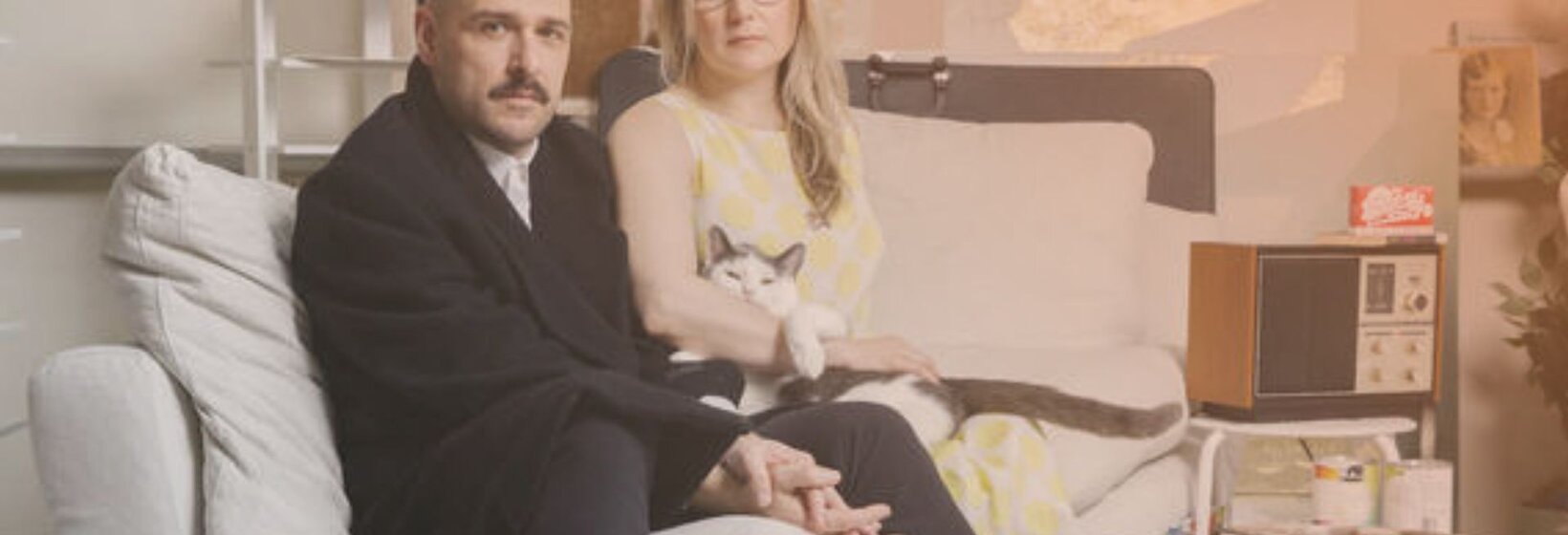
Writing Scripture-ful Music with The Welcome Wagon
Podcast Episode #182
Reverend Vito and Monique Aiuto of The Welcome Wagon join the podcast to talk about their latest album "Esther". They share their origin story, who their influences are, and on writing scripture-ful music.
On the genesis of "The Welcome Wagon"
Vito was a campus minister at NYU and as a married couple, they planted a church. They would always host people–their home being a gathering place for many. Potlucks and hosting Thanksgiving for people not going home. It was for people inside the church and not. That's when Monique started to refer to them as a Welcome Wagon.
It was also around the time I started to learn to play guitar. We started writing together and would play them around the home. Occasionally it would be a small group and others it'd just be individuals.
On why music was the next step
Vito loves music but didn't grow up playing instruments. When they got married I just had the idea of having music around the house always. We also around that time met a handful of people that were musicians that were at the church. I didn't grow up in church, so I didn't know many hymns or modern music. I became a Christian in college, and someone gave me a cassette of Michael W. Smith and Amy Grant songs.
We knew all these people who were musicians and great worship leaders. Some were from the more modern worship music place, but I was getting more involved in the modern hymn movement.
Monique grew up in a very musical home. We'd sing as a family, my father would gather with his friends and sing in harmony. There were songbooks in everybody's home--music was always around.
Every week we were using music to serve people–we didn't even plan it. It just happened.
On what influences them in creating music
Our number one influence is Sufjan Stevens. I went on tour with him after only playing guitar for one month. I was able to learn a lot of chords and parts when playing his songs on tour. He continues to be a big influence on us as a dear friend.
We also grew up being children of "hippies", so people like Niel Young, weird Christian quartet songs. All of that mashed together is what we are.
We are also greatly influence by our friends. We write the music. But the arrangements are definitely a collaborative effort with our friends.
On creating their arrangements and how songs evolve
We start by writing on the acoustic guitar. I'll be working on these songs for years, and will play around with different vocal things and counter melodies. And then we don't have a ton of time in the studio, so we have people that we trust help us produce the songs.
There are a lot of layers and the most of it is recorded live, together. And then we'll play around by adding more instruments and sounds.
Over the years we've made a ton of albums with the worship team at church. We don't often play out songs at church, but we would love to include our team in helping us create our music.
On knowing to take their music outside of their home and to a broader audience
I don't really write these songs as worship songs to be used in church. That doesn't make them better or worse, writing songs for the church is an art. But I wrote these songs to be for me and Monique.
Our friend Sufjan was the reason we took our music to a broader audience. And it was another friend that pushed us out on stage to reach even more people.
On the new album "Esther"
It's named after Monique's grandmother who gave her an audio cassette of her reading scripture. It's a bit about home and making home where you're at.
We started rehearsing for the album the week COVID happened. So we spent a lot of time just playing these songs around the home. The thinking of naming the album "Esther" is that you inherit all these things from your life. You inherit the family you're born into, the blessings, adversities–a lot of the songs around about these things. Near the end of the process, we added the audio of Monique's grandmother reading scripture.
Go listen to the new album "Esther".
Follow The Welcome Wagon on Instagram.
Listen to the podcast on Apple Podcasts or Spotify.